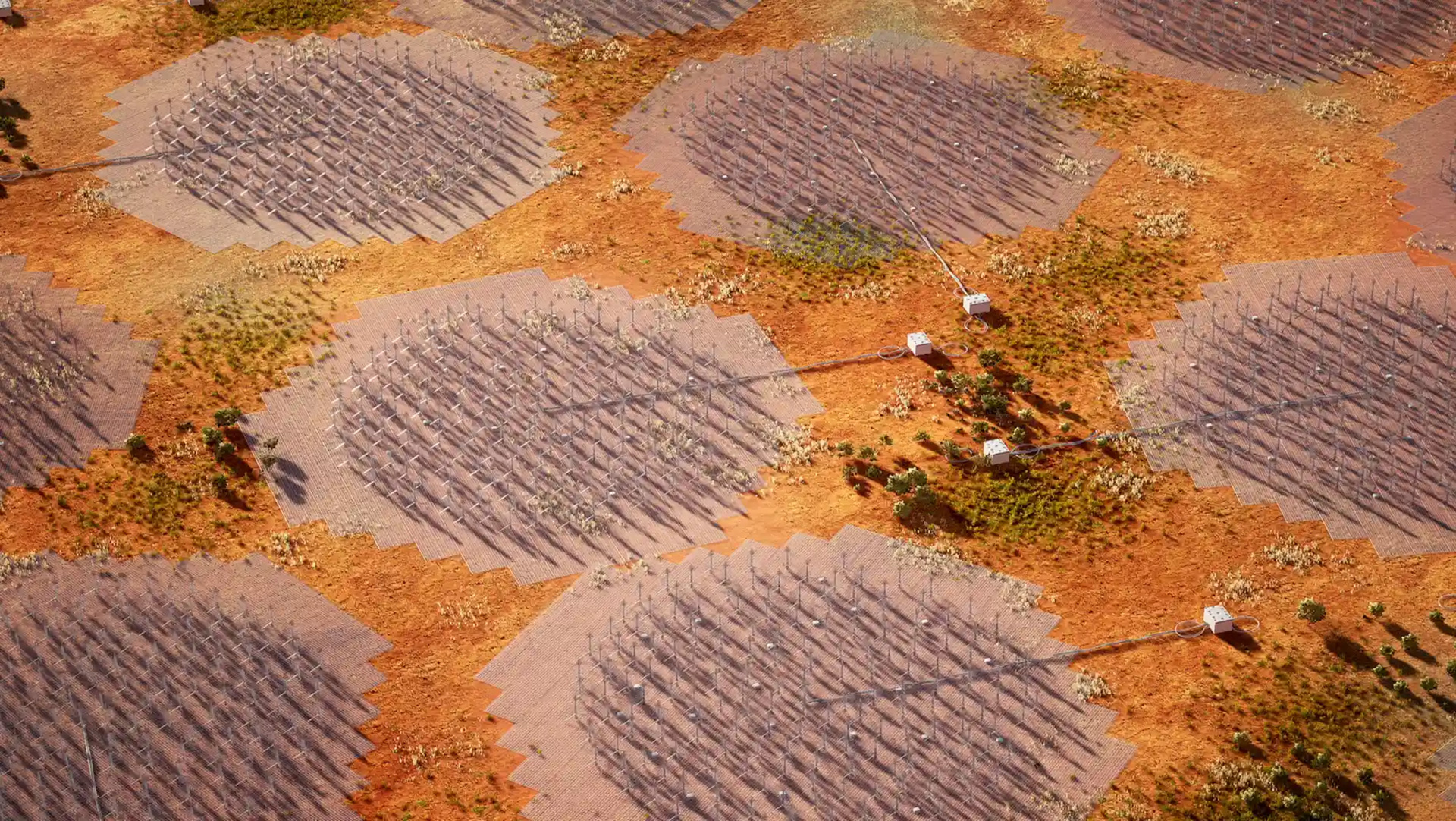
Researchers confirmed an exoplanet using NASA’s James Webb Space Telescope for the first time.Formally classified as LHS 475 b, the planet is almost exactly the same size as our own, clocking in at 99% of Earth's diameter.

NASA officials said the icy visitor was first spotted in March 2022 while it was inside the orbit of Jupiter. The icy celestial body - called C/2022 E3 (ZTF), is making its closest approach to Earth on 2 February.

A Japanese scientist has shown that large gamma-ray-emitting bubbles around the center of the Milky Way were produced by fast, outward-blowing winds and an associated "reverse shock."

A new analysis of dust retrieved from the Moon suggests that water bound up in the lunar surface could originate with the Sun.

A recent study finds that the vast subsurface fracture networks in Gale crater would have provided water-rich and radiation-shielded conditions that were potentially more habitable than those on the surface.

In giant clusters of hundreds or thousands of galaxies, innumerable stars wander among the galaxies like lost souls, emitting a ghostly haze of light. These stars are not gravitationally tied to any one galaxy in a cluster.

Two exoplanets – Kepler-138 c and Kepler-138 d – appear to have oceans at least 1,600 km deep. That’s about 500 times deeper than the average depth of Earth’s oceans. However, they could be much warmer and under very high pressure.

NASA's Artemis 1 mission has returned to Earth following a successful trip around the moon. NASA will begin assessing all the data that the spacecraft collected on its 1.4 million-mile journey through space and begin preparing for Artemis II.

James Webb Space Telescope has captured light emitted by the galaxies more than 13.4 billion years ago, which means the galaxies date back to less than 400 million years after the Big Bang, when the universe was only 2 % of its current age.

Orbital observations unveil the presence of an enormous mantle plume pushing the surface of Mars upward and driving intense volcanic and seismic activity.

A new research is lending support to the possibility that an asteroid slammed into Martian ancient ocean 3.5 billion years ago, creating a mega-tsunami 309 meters high.

Astronomers are now closer to a major technological upgrade. Australia has started construction of its portion of the Square Kilometer Array, a system that should become the world's largest radio telescope.

Astronomers searching for radio signals that could be signs of extraterrestrial life have just gained access to South Africa's MeerKAT telescope.

Rock samples from the Jezero crater analyzed by NASA's Perseverance Mars rover show evidence of liquid water and signatures that could be organic compounds.

The planet, nearly 10 times Earth’s mass, orbits a small, red-orange star about 200 light-years away. This planet is extremely hot, with an estimated temperature of 1,050 Celsius.